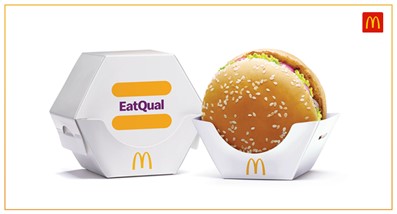The killer question: how digital are you?
15 Jul 2016

Last month I wrote an article entitled, ‘Preparing for that perfect interview’ in which I gave my observations on the interviews I have been lucky enough to secure with both head hunters and prospective employers over the last few months.
What I found interesting is that the focus for these interviews has changed dramatically over the last decade or so when I was first offered a role at O2.
Historically, interviews concentrated on the marketing fundamentals – whether that be positioning, segmentation, targeting or proposition creation and execution. All those years ago, I remember going into the offices in Slough to meet the then Marketing Director, Sally Cowdry, armed with examples of my through-the-line marketing experience; how a proposition was meeting the needs of certain sub-segments; what the insight was and how that impacted the brand. Now the questions and the focus feel very different and quite specific.
In every interview I attended, irrespective of role, the main question I was asked was:-
How digital are you?
This is a killer question as it is so broad. I found it helpful to clarify the context of the word Digital as it is far-reaching. On the one hand, it could cover migration of Operations from (perceived) more expensive channels to online and apps; on the other, how to develop digital campaigns targeting sub-segments based on, for example, key word searches or finally, how to move the company to the Internet of Things and the promised land of new revenue & profit streams.
On the former, I am wary of Job Descriptions that talk about significant Operational savings based on moving customers to newer, cheaper channels and found it worthwhile probing as to why the particular business believes that their key customer groups actually want to have such a relationship and also where the numbers come from. Too often, cost pressurized organisations place significant savings into their budgets but have very little idea as to how their customers will feel in the process or even whether it is remotely feasible. From experience, it is operationally difficult to do as the self serve experience needs to be spot on and that can take significant investment and back-end re-engineering adding, at the start, further costs rather than removing them.
With regards to digital style campaigns --- I found it helpful to subscribe to websites such as Social Media Marketing and the Direct Marketing Association to ensure that I was up to speed with any new terminology. I went armed with a number of examples that allowed me to talk confidently about such topics as programmatic marketing; geo-fencing; cookies; web data; web logs; profiling against TGI/ Mosaic; personalisation; advertising on Facebook/ Instagram based on key word searches; SEO; PPC....
My advice, if you don’t have the direct experience in this space or don’t feel confident talking in detail about the subject – either seek out a trusted expert or if you have an online agency ask (surreptitiously!) for a crash course in digital marketing.
And for those companies that are looking to move to the Internet of Things - the key questions that you need the CEO to answer are how committed he/ she is to this; how much ringfenced budget (Capex & Opex) will be set aside and time frames that the Board will entertain for payback. If the business is serious then it will be agreeing to long term commitments.
My overriding conclusion to this type of a question is that interviews have changed from being broad brush where end-to-end marketing experience is what really matters to now focusing more on the minutiae and very specific elements of the marketing mix. This is a shame as great organisations and brilliant marketers can only achieve success by understanding the customer insight, developing a positioning that delivers competitive advantage and ultimately executing through a variety of channels a product/ service/ experience or proposition that targeted groups actually want.
Of course, it is only right to be able to show that you are comfortable with the new world of ‘Digital’, however, make sure that the people you are speaking to are able to share their vision for the more basic marketing fundamentals as that will be the key to their and your success. Good luck!




.jpg)
Please login to comment.
Comments